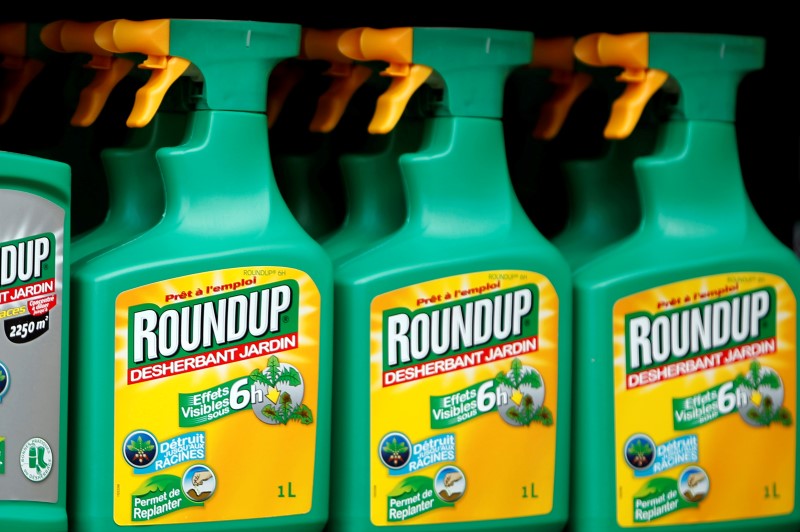Image: Monsanto’s Roundup weedkiller atomizers are displayed for sale at a garden shop at Bonneuil-Sur-Marne near Paris, France, June 16, 2015. REUTERS/Charles Platiau
BRUSSELS (Reuters) – An impasse between EU nations on whether to allow Monsanto’s Roundup and similar weed-killers to continue to be sold means that the European Commission, rather than national politicians, will decide the issue next week.
With most EU attention focused on Britain’s shock decision to quit the bloc, everyday work continued in Brussels on Friday where an “appeal’s committee” of representatives from the 28 member states failed to agree on whether to extend the license for the herbicide glyphosate after it expires next week.
Contradictory findings on the carcinogenic risks of the chemical have pitted farming and chemical lobbies against consumer and environmental groups.
The European Crop Protection Association said banning the chemical could harm farmers, increase food prices and damage the environment. But lingering safety concerns made some EU countries reluctant to approve its continued use.
The Commission – after failing to win support for a 15-year renewal of the license – had offered a 12 to 18 month extension to allow time for a further study by the European Chemicals Agency (ECHA).
But France and Malta voted against that and seven countries, including Germany, Italy and Austria, abstained, according to EU sources, meaning there was not the required majority.
“The Commission regrets that no decision could be taken by the member states, in spite of its efforts over recent weeks to accommodate requests and concerns,” a spokeswoman for the EU executive said.
The issue is now on the Commission’s agenda for Monday. If the license is not extended, manufacturers will have six months to phase out products containing the widely used herbicide.
Monsanto has defended the safety of glyphosate and has not ruled out a legal appeal if its license is not extended.
Jonas Oxgaard, senior analyst at investment bank Bernstein, has estimated Monsanto could lose earnings of up to $100 million if the EU were to halt glyphosate sales.
Environmental groups said the Commission should take its cue from the lack of political consensus over the chemical.
“We are glad EU governments have represented their citizens,” said Bart Staes, a Green group member of the European Parliament. “Forcing through the authorization would raise major democratic concerns about the EU’s decision-making process.”
(Editing by Robin Pomeroy)
Copyright 2015 Thomson Reuters. Click for Restrictions.


